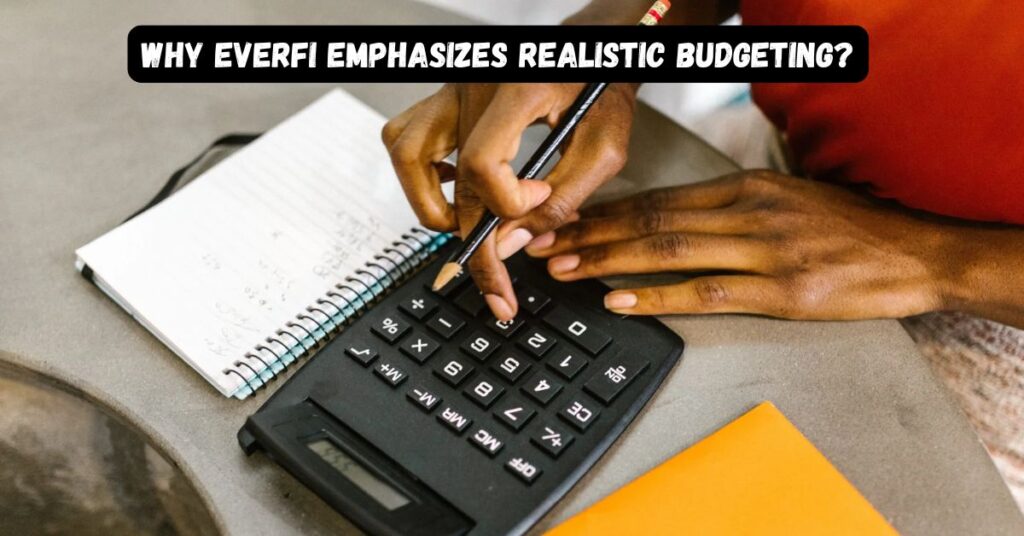Creating a realistic budget is essential for financial well-being. Many people struggle with what belongs in their budget.
Everfi’s financial literacy programs emphasize the importance of understanding proper budget components. Learning what to exclude from your budget is just as important as knowing what to include.
Your financial reality depends on making accurate assessments of your current situation. Budget planning requires careful consideration of your actual resources. Money management skills develop when you create honest financial pictures.
What Is a Budget, Really?
A budget is simply a plan for your money. It shows where your income goes each month. Financial planning starts with understanding your cash flow. Your budget reflects your current financial status. It helps track spending habits effectively. Budgets prevent overspending when followed consistently. They provide a clear picture of your financial discipline.
Money management becomes easier with a well-structured budget. Your financial well-being improves when you monitor expenses regularly. Budgets are living documents that change as your situation changes. Personal finance skills develop through consistent budgeting practices.
Common Elements You Should Consider in a Budget
Income tracking forms the foundation of any budget. Only guaranteed income belongs in your current budget calculations. Fixed costs like rent and utilities must be included first. Variable costs such as groceries and entertainment come next. Savings allocations should be treated like any other expense. Debt payments need dedicated space in your budget plan.

Emergency funds protect against unexpected financial challenges. Transportation expenses occur regularly and need budget space. Healthcare costs should never be overlooked in budget planning. Insurance premiums require monthly or annual allocations.
Budget components must reflect your actual spending patterns. Family expenses vary but remain essential budget elements. Entertainment spending deserves honest assessment in your budget. Personal care costs are often underestimated in budget creation.
So… What Should Not Be Considered When Setting a Current Budget?
Future income that isn’t guaranteed should never appear in current budgets. Everfi education programs emphasize this crucial point consistently. Expected bonuses don’t belong in this month’s budget planning. Anticipated tax refunds aren’t current financial resources. Potential side hustle earnings remain speculative until received.
Money management requires dealing with actual, not hoped-for funds. Unrealized investment gains shouldn’t influence current spending decisions. Realistic budgeting focuses on money already in your possession. Projected salary increases remain outside current budget considerations.
Financial discipline means budgeting only with guaranteed resources. Everfi programs teach students to avoid counting uncertain income. Your financial picture becomes distorted when including speculative funds.
Why It’s a Mistake to Include Future or Uncertain Income?
Counting money you don’t have leads to overspending. Financial reality gets compromised with speculative income inclusion. Budget planning becomes meaningless with imaginary resources. Debt accumulates when spending exceeds actual income. Everfi education highlights the dangers of anticipated income budgeting.
Financial stress increases when expected money doesn’t materialize. Emergency funds get depleted covering shortfalls from overly optimistic budgets. Your financial discipline weakens with each unguaranteed dollar counted. Money management principles collapse under speculative budgeting practices.
Realistic budgeting requires honest assessment of current resources. Financial security depends on conservative income estimates. Personal finance success comes from acknowledging actual limitations.
Examples of What NOT to Include in Your Current Budget
Performance bonuses shouldn’t appear in your budget until received. Commission-based income remains speculative until payment clears. Potential gift money doesn’t constitute reliable financial resources. Expected inheritance funds stay outside current budget parameters. Anticipated freelance project payments aren’t guaranteed income.
Money from items you haven’t sold yet doesn’t exist. Contest winnings remain hypothetical until awarded. Expected overtime pay shouldn’t influence current spending decisions. Tax refunds aren’t yours until deposited in your account. Promised loans stay excluded until funds transfer completes.
Scholarship money awaiting approval doesn’t count as current resources. Royalty payments expected but not received remain outside budget calculations. Insurance reimbursements pending approval aren’t current income.
How to Handle Irregular or Seasonal Income?
Base your budget on minimum expected monthly earnings. Create separate savings during high-income periods. Expense management becomes crucial with fluctuating income streams. Average your annual income for more stable monthly budgeting. Financial planning requires extra caution with inconsistent earnings.
Money management skills matter most with irregular income patterns. Build larger emergency funds when income fluctuates regularly. Realistic budgeting means preparing for lowest-income scenarios. Budget components need greater flexibility with seasonal work. Income tracking helps identify patterns in variable earnings.
READ THIS BLOG: Ingredients in Vullkozvelex Safe to Use
Personal finance stability comes from conservative spending with irregular income. Financial discipline matters more when paychecks vary significantly. Everfi education provides strategies for inconsistent income budgeting.
Why Everfi Emphasizes Realistic Budgeting?
Everfi teaches financial literacy as a core life skill. Their programs emphasize honest assessment of financial situations. Students learn the dangers of wishful thinking in budget creation. Everfi courses prioritize sustainable practices over quick fixes. The educational framework focuses on building lifelong money habits.

Their approach highlights the importance of financial discipline. Students develop critical thinking about income and expenses. Everfi’s practical exercises demonstrate real-world budgeting challenges.
Their curriculum design addresses common financial pitfalls. Students practice creating realistic budgets with actual numbers. The learning objectives include identifying proper budget components. Everfi’s interactive simulations show consequences of poor budgeting decisions.
How to Build a Smarter Budget Today?
Begin with listing all guaranteed income sources. Calculate fixed expenses that occur every month. Estimate variable costs based on previous spending patterns. Allocate specific amounts for savings goals. Assign realistic figures to discretionary spending categories. Review previous bank statements for accurate expense data.
Use budgeting apps for automatic expense tracking. Monitor spending weekly rather than monthly. Adjust categories as your financial reality changes. Separate needs from wants when allocating funds.
Create specific budget components for irregular expenses. Practice zero-based budgeting where every dollar has a purpose. Review and revise your budget monthly for best results.
Frequently Asked Questions
What exactly does Everfi teach about budgeting?
Everfi’s financial literacy programs emphasize realistic budgeting based only on guaranteed income, helping students develop sustainable money management habits.
How often should I review my budget?
Monthly reviews keep your budget relevant, but weekly check-ins help maintain financial discipline and make smaller adjustments before problems develop.
Can I include my spouse’s income in my budget?
Include only reliable income you can count on—if your spouse’s income is stable and contributes to household expenses, it belongs in your shared budget.
What percentage should go to savings in a budget?
Financial experts generally recommend saving 10-20% of your income, but any consistent saving amount helps build financial security.
How detailed should my budget categories be?
Create categories specific enough to track spending patterns but not so detailed that maintaining your budget becomes overwhelming.
Conclusion
Effective budget planning requires complete honesty about your current financial status. Excluding uncertain income ensures your budget reflects reality. Financial discipline develops through consistent application of sound money management principles. Everfi’s educational approach emphasizes the practical side of personal finance.
Your financial picture becomes clearer when you separate wishful thinking from actual resources. Budget components should only include guaranteed income and realistic expenses. Financial well-being improves with each careful budgeting cycle.

SEO expert focused on boosting online visibility and driving organic traffic. Passionate about data analysis, strategy, and the latest digital marketing trends.















